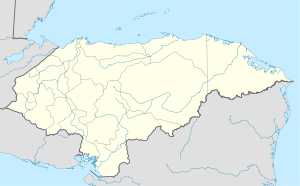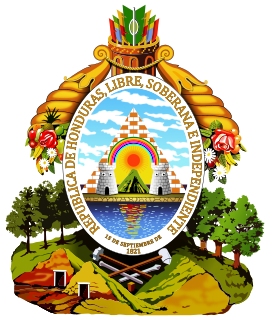
Honduras is divided into 18 departments. Each department is headed by a governor, who is appointed by the President of Honduras. The governor represents the executive branch in the region in addition to acting as intermediary between municipalities and various national authorities; resolves issues arising between municipalities; oversees the penitentiaries and prisons in his department; and regularly works with the various Secretaries of State that form the President's Cabinet. To be eligible for appointment as governor, the individual must a) live for five consecutive years in the department; b) be Honduran; c) be older than 18 years of age and; d) know how to read and write.
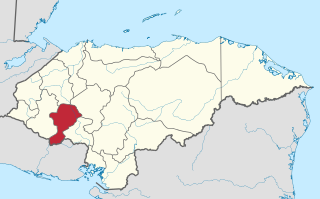
Intibucá is one of the 18 departments in the Republic of Honduras. Intibucá covers a total surface area of 1,186.1 square miles (3,072 km2). Its capital is the city of La Esperanza, in the municipality of La Esperanza.

Lempira is one of the 18 departments in Honduras. located in the western part of the country, it is bordered by the departments of Ocotepeque and Copán to the west, Intibucá to the east, and Santa Bárbara to the north. To its south lies the El Salvador–Honduras border. The departmental capital is Gracias.

Santa Rosa de Copán is a municipality in Honduras. The city of Santa Rosa de Copán is the municipal seat and the departmental capital of the Honduran department of Copán. It is located approximately 1,150 metres (3,773 ft) above mean sea level.
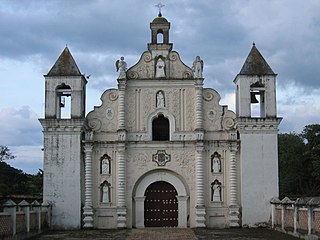
Gracias is a small Honduran town/municipality that was founded in 1536, and is the capital of Lempira Department.

La Esperanza is the capital city and a municipality of the same name of the department of Intibucá, Honduras. La Esperanza is famous for having the coolest climate in Honduras. It is considered the heart of the Ruta Lenca, a region of Lenca ethnic influence that spans Honduras from Santa Rosa de Copan to Choluteca. Sites on the Lenca Trail have been designated by the government and United Nations development in order to encourage more cultural tourism, and help create new markets for the traditional crafts, such as pottery, practiced by the Lenca, in order to preserve their culture.

Erandique is a municipality in the Lempira Department of Honduras.

Guarita is a municipality in the Honduran department of Lempira.

La Iguala is a municipality in the Honduran department of Lempira.
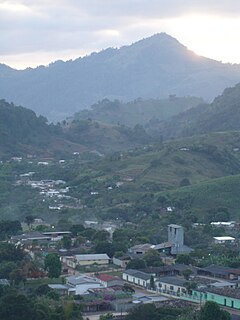
La Unión is a municipality in the Honduran department of Lempira.
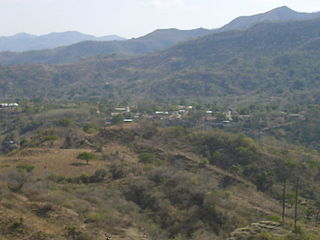
La Virtud is a municipality in the Honduran department of Lempira.

Lepaera is a municipality in the Honduran department of Lempira. It has tropical climate all year round.

Mapulaca is a municipality in the Honduran department of Lempira.
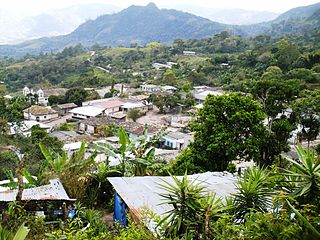
San Rafael is a municipality in the Honduran department of Lempira.

Talgua is a municipality in the Honduran department of Lempira.
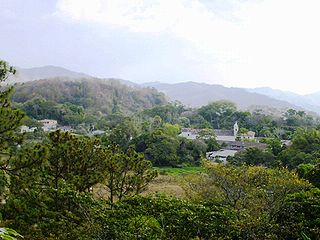
Tambla is a municipality in the Honduran department of Lempira.

Tomalá is a municipality in the Honduran department of Lempira.

Belén is a municipality in the Honduran department of Lempira. The latitude is 15.75 north, the longitude is 87.93 west, and the altitude is 313 meters.
Honduras has rich folk traditions that derive from the fusion of four different cultural groups: indigenous, European, African and Creole. Each department or region, municipality, village and even hamlet contributes its own traditions including costumes, music, beliefs, stories, and all the elements that derive from and are transformed by peoples in a population. In sum, these define Honduran Folklore as expressed by crafts, tales, legends, music and dances.

The San Cristóbal fortress is located in the city of Gracias, department of Lempira, built on a small hill above the city, which was formerly the center of the town of Gracias Lempira, which was once the capital of New Spain and headquarters of the Real Audiencia de los Confines in 1544; Gracias was a strategic city within the Province of Honduras in the colonial era, then in the pro-independence era and then in the Central American federal transition.

